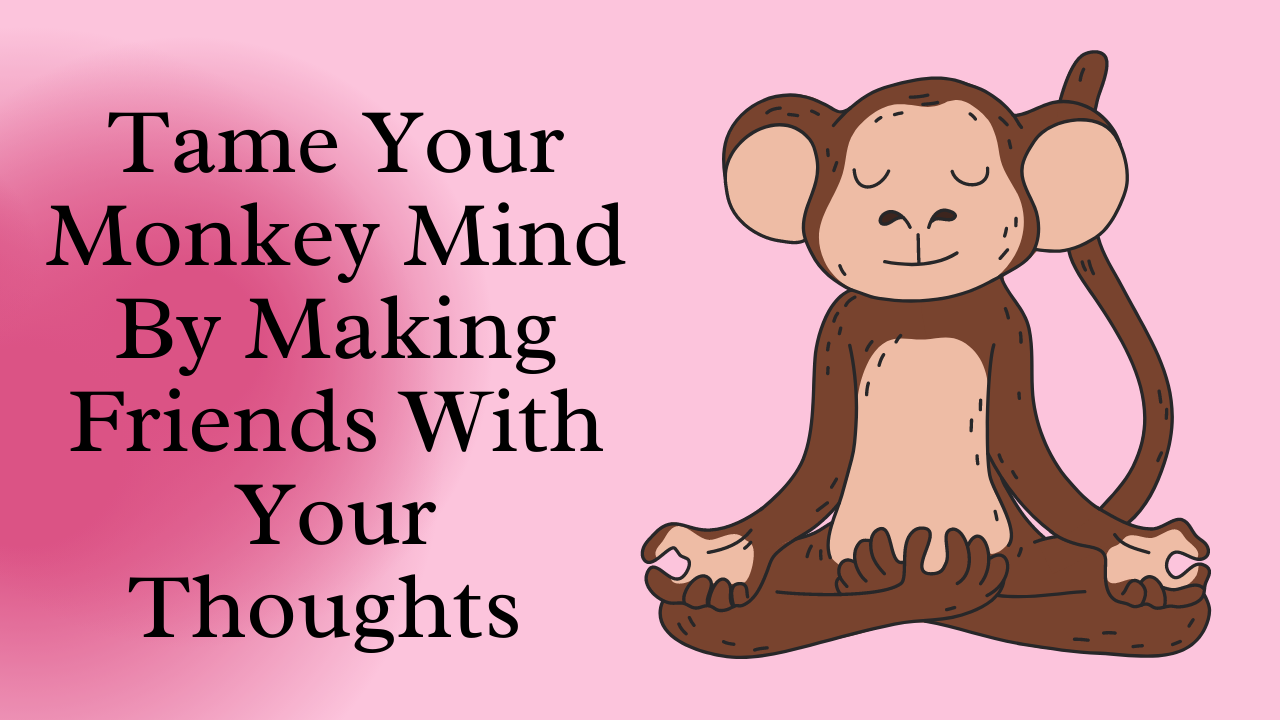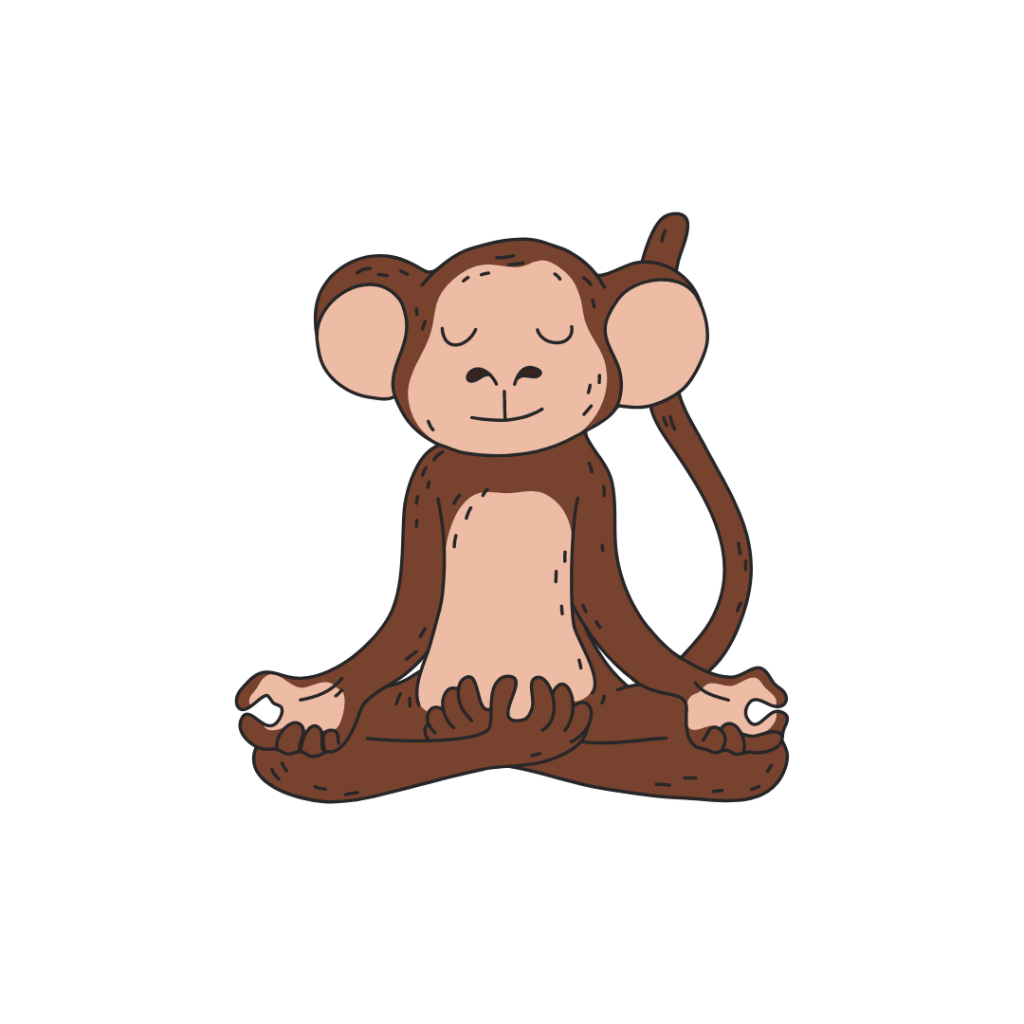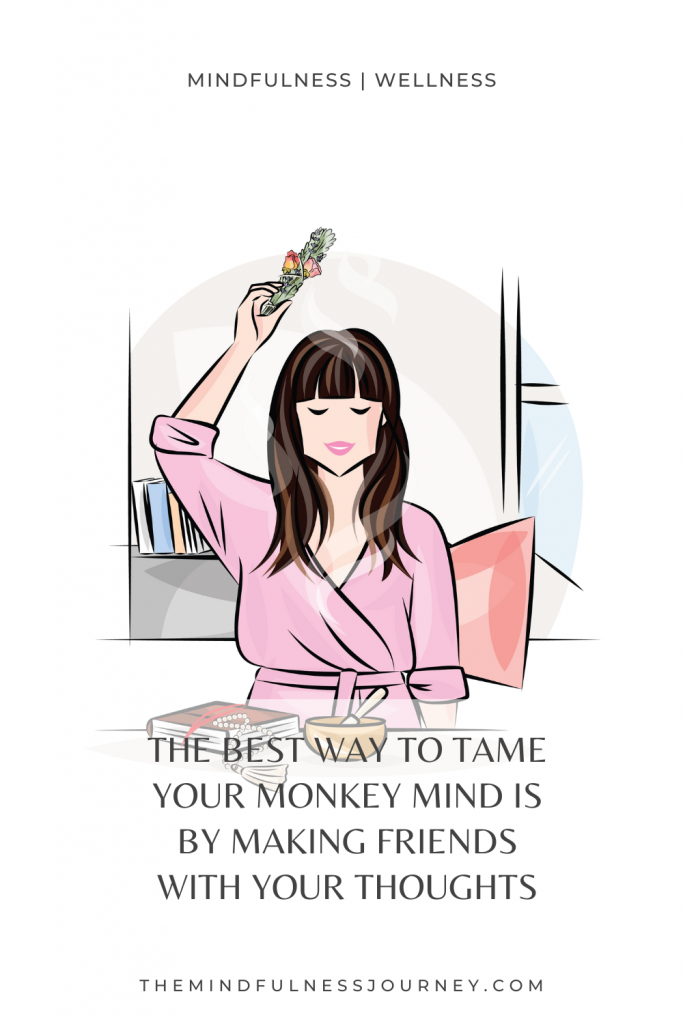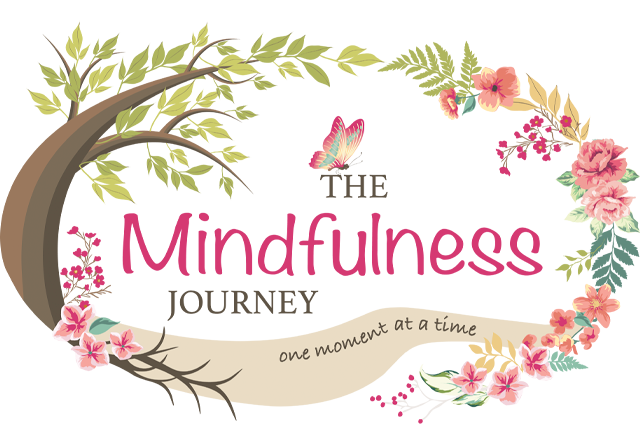
The Best Way to Tame Your Monkey Mind is by Making Friends With Your Thoughts
We can tame our monkey mind through a regular mindfulness meditation practice. Meditating helps us to notice our thoughts and it reminds us that we are not our thoughts.
Thoughts are just thoughts – they’re not facts and taming your monkey mind helps you to realize this.
It’s important to make friends with our thoughts because our mind is the “person” that we spend the most amount of time with. For a lot of us, our mind can feel like our home and at the same time, it can feel like our prison.
Learning how to make friends with your thoughts helps you to break out of this prison because you start to treat your mind (and yourself) the same way that you would treat a friend – imagine how that would feel. If when your mind came up with a judgment instead of agreeing with it and listing more ways that you suck, you instead spoke to it like you would if your best friend was beating themself up?
We’ve talked before about how our brains are programmed to have a negativity bias and how to work with our negative self-talk. Today we’re going to go one step deeper by talking about taming our monkey minds.
Taming your monkey mind
Our thoughts and judgments feel like they’re being protective. When our monkey mind tells us that something isn’t safe – we listen to it.
But what can seem “dangerous” might really be something just on the other side of our comfort zone.
It can be something that you really want to do but your fear, nerves & doubts talk you out of it by convincing yourself that taking that “risk” is too dangerous and you’ll end up hurt.
Risks like – starting your own business, launching a new program, or raising your hand to speak up at work or to volunteer for something.
All of these might feel super scary and the best way to get started with these thoughts and fears is to notice when and why they show up.
Thoughts can lead to Rumination
Our monkey mind, sometimes called our inner critic, can often lead us to board the rumination train. A train that we DO NOT want to board as studies have linked ruminating to depressive disorders & anxiety symptoms. When that train enters the station (which it will) it’s time to notice it and to let it move on without you.
Ruminating is when we spend more time in our heads & less time enjoying what’s happening around us.
When we’re caught up ruminating with our monkey minds we’re not actually in our lives.
Instead, we’re in our heads mentally beating ourselves up for something that happened, yesterday, last week, or 15 years ago.
So how do we handle rumination?
Focusing the Mind
Mindfulness teaches us how to calm & focus the mind – the perfect antidote to ruminating and monkey mind.
The more you practice, through meditations, the better equipped you are to notice when the mind starts to wander and to bring it back. Every time you notice yourself getting distracted in a meditation? Great! You’re building your awareness muscle which is the exact same muscle you will use to refocus the mind when it starts to get lost in rumination. Every single time you do this in meditation or throughout the day you’re strengthening the brain’s ability to focus.

4 Quick Ways to Calm Your Mind
- A 3 minute breathing practice. Pay attention to the breath by noticing where you feel it the strongest in your body. Stay with the beath as you breathe in and out for the duration of the practice.
- Practice self-compassion to help fill your cup back up. What’s something that you can do today to bring kindness & self-compassion to yourself? What do you need right now? (ex. take a break, head outsie for a walk, spend some time sitting quietly with yourself.)
- Do a quick body scan. Start by taking your seat in a chair then scan from your toes up to your head noticing everywhere you body is touching the surface of the chair.
- Grounding practice. When you’re sitting (or standing) feel into where your body is touching the seat or the ground. Feel into and notice the sensation of your feet pressing into the floor. If you’re sitting notice the weight of your body in the chair.
Making Friends With What You’re Feeling
Now that you’ve learned how to calm the mind, it’s time to tame your monkey mind by making friends with your thoughts & emotions.
When we make friends with our thoughts and emotions we take the pressure off ourselves because we give ourselves the opportunity to respond versus react to situations.
We start off by noticing our thoughts and letting them float past like clouds in the sky. When judgments arise (which they will) we notice them and let them float past as well. Friendly reminder – try not to judge the judgments as they arise.
Inside of The Welcome Mat practice, I guide you through how to welcome in and make friends with your thoughts, emotions, and sensations in the body.
The more that we practice welcoming in what’s here the easier it becomes to work with it. WHich helps us to stop making ourselves feel worse.
As someone running their own business while managing a chronic illness learning how to tame my monkey mind has been instrumental.
Monkey Mind & Chronic Illness
Having a chronic illness means that some days I will wake up and my already limited capacity will be decreased. Like yesterday when I had a migraine and spent the morning sick in the bathroom before falling asleep after taking my pain meds.
Now, before doing this work and taming my monkey mind, I would have started mentally beating myself up with thoughts around how I “should” be working and that I “don’t have time” to take care of my body.
Neither of which helps the situation. They only make me feel worse. And I still have the migraine that’s making me sick.
But by noticing what’s here, by welcoming it in, I can stop these thoughts and judgments in their tracks and not make the situation worse.
Sure, sometimes days like this require some juggling of tasks. I might have days where I have to put my plans aside to take care of my physical and mental health. And I do. But learning how to do this without judgments has been what’s helped me to continue to show up in my business even after my most recent neurosurgery.
I was able to work with my monkey mind and my inner critic and by doing so I figured out what I need to create a sustainable business blueprint so that no matter what is going on I can continue to be in my business in a way that works WITH my needs.
Inside my free training, I show you how being more decisive helps you to also create a sustainable business – without letting imposter syndrome take over.
Honestly, after my accident, and with my chronic illness, there was a time when I thought that my business would never be more than a hobby – because I couldn’t work as many hours as my peers.
It took A LOT of work on myself to realize that the number of hours I put into my business doesn’t indicate whether I am a “serious business owner or not” it’s the quality of the work that I do that matters.
I wasted a lot of time and energy (which is already at a premium) trying to be someone I’m not.
I learned the hard way that this wasn’t sustainable and it took almost burning out in my first few years to realize this. It was then that the Sustainable Business Blueprint was created.
You can find out more about the Sustainable Business Blueprint inside my free training.

Now, it’s your turn. You can come to my training and learn from my mistakes. I spent YEARS struggling inside my business trying to create something that DID NOT work for me – and I don’t want to see you do the same. Learn from my experience before the same thing happens to you.
I combined my time working as a psychotherapist with my years running a group coaching practice as well as my own experience as an entrepreneur to create this blueprint. I know that it works because everything in it is based on strategies and practices with numerous studies behind them to show that they work.
They’ve helped me, my former clients, and my current students and I know that they will work for you too.





